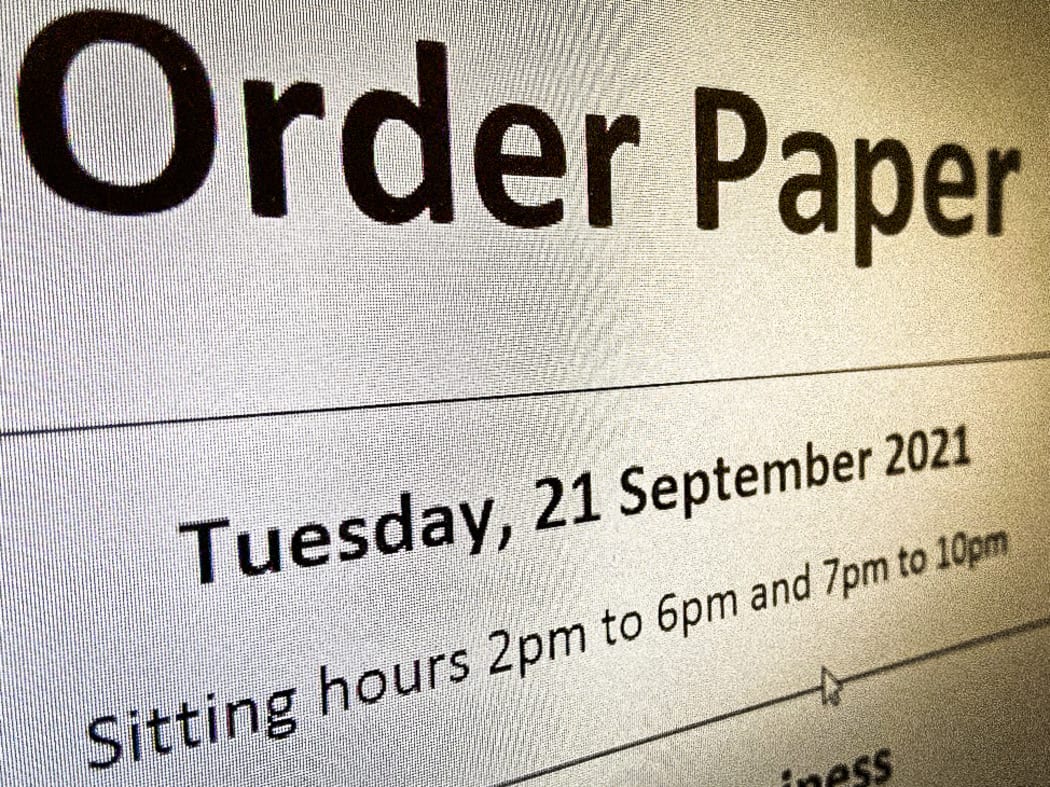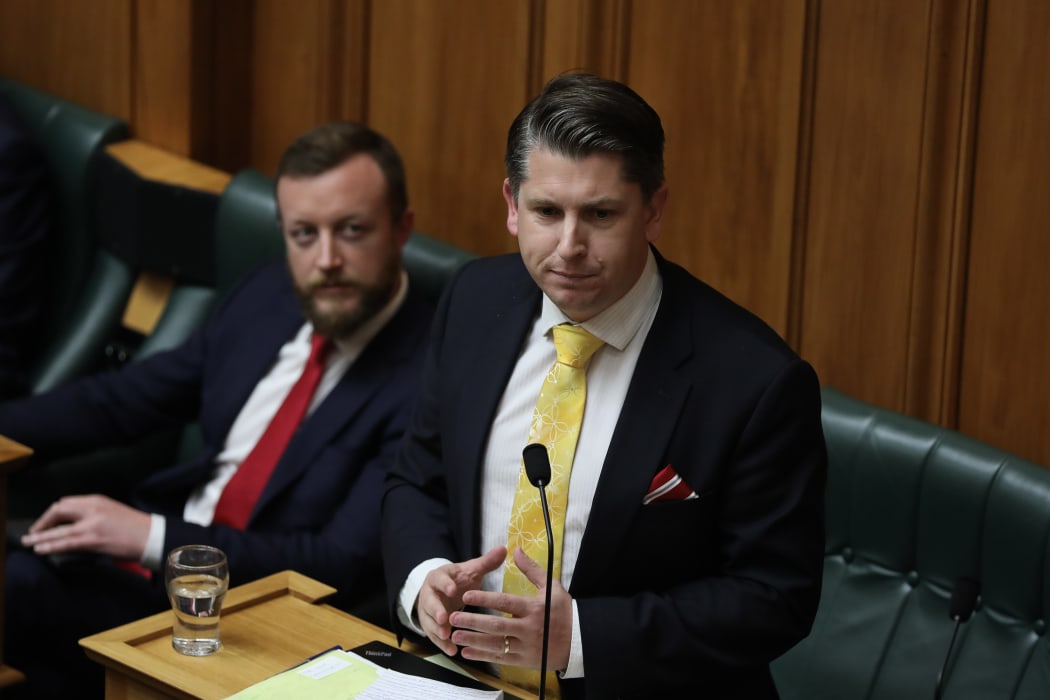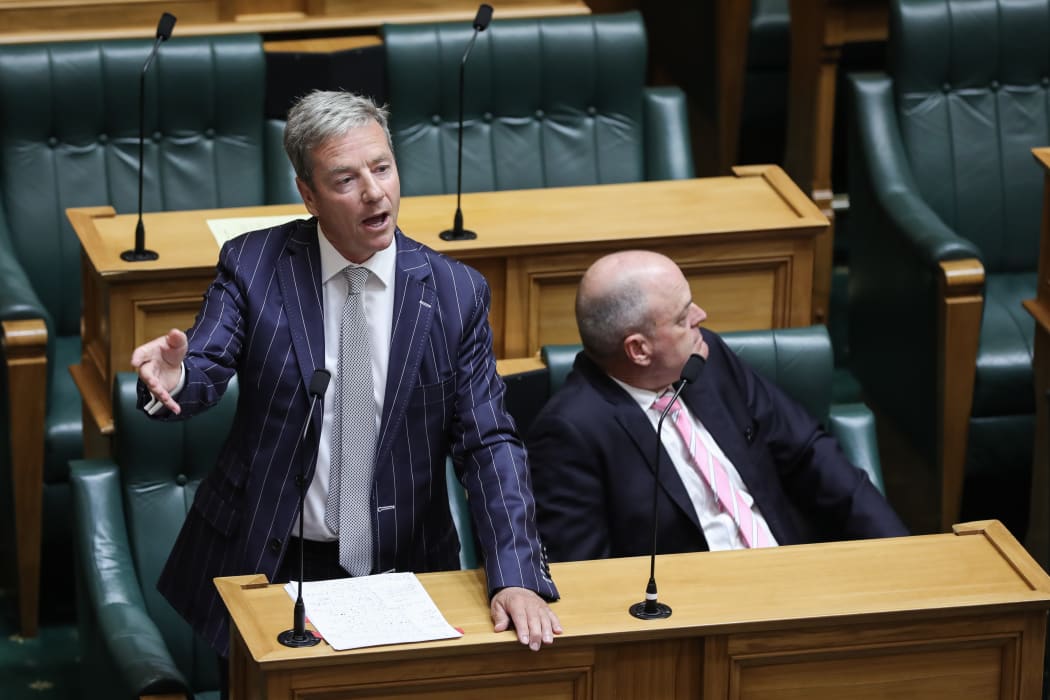Having lost three weeks of normal sitting time to Covid-19 restrictions the House is left with just nine sitting weeks until Christmas and much on the agenda. Extended hours are planned to help catch up lost time, but not for this week.
The Speaker has somewhat relaxed restrictions on the numbers of MPs allowed in the debating chamber and the House is observing its usual sitting hours (rather than the very minimal hours of recent weeks).
There are a slew of major government bills up for discussion (including one brand new one), but Wednesday will be the first Members Day since August 4th and include a number of some interesting new bills.

Photo: ©VNP / Phil Smith
Here are some things to note - first the Government bills:
Counter-Terrorism legislation
The Counter-Terrorism Legislation Bill is back from the Justice Select Committee for a second reading. The committee has suggested a few amendments including making it clear that 'planning to plan' a terrorism act is not included in the new 'planning' an act definition.
They have also suggested changing the intended outcome of an act from “cause fear” to “intimidate” to make it less nebulous for legal proof.
Clean vehicles: new sticks and carrots
The Land Transport (Clean Vehicles) Amendment Bill is a new legal vehicle (pun intended) aiming at lowering New Zealand’s light vehicle emissions via three levers.
It would apply a clean vehicle standard to imports, formalise a system of clean vehicle discounts/dirty vehicle charges, and create a vehicle labeling requirement to inform buyers of vehicle emissions.

Labour MP and Minister of Transport Michael Wood has a brand new bill up for debate. Photo: VNP / Phil Smith
Drinking water controls
The Water Services Bill is an element of Local Government Minister Nanaia Mahuta’s overhaul of New Zealand’s water supply and waste systems. This bill reforms the regulation of drinking water with a new body to oversee it.
It is returning from the Health Select Committee who considered a whopping 977 submissions on it including 130 oral presentations. Many submissions were from people who use very small, local water supplies (like a shared bore) and don’t want to be caught up in a system designed for major suppliers.
The committee is recommending some amendments. They have noted that the water authority Taumata Arowai is working on "acceptable solutions" for small suppliers. This has satisfied the committee majority but National and ACT still have concerns about those smaller users.
Sole parent work requirements: child age changes
The Social Security (Removal of Subsequent Child Policy) Amendment Bill undoes a change that National made in 2012 to sole parents benefit rules regarding work obligations for mothers on sole parent support.
Sole parents have obligations to seek part time work once their youngest dependent turns three, and full time work (30+ hours) once their youngest is thirteen.
The 2012 rule meant that subsequent children (those born after claiming the benefit) didn’t impact on a parent’s obligation to work once that new child turned one year old. The new rule would mean that work obligations were based on the age of the youngest dependent child.
The Bill is returning from Select Committee with very minimal amendments suggested. National and ACT oppose the Bill. Te Pāti Māori, the Greens and Labour support it.

National MP Andrew Bayly in the House. This week he may achieve the relatively unusual feat of passing a member's bill from opposition. Photo: ©VNP / Phil Smith
The Members' Bills
The member’s bills this week include a third reading and a bunch of first readings. Many member’s bills don’t survive a first reading but third readings are on the cusp of becoming law.
The New Zealand Superannuation and Retirement Income (Fair Residency) Amendment Bill has a third reading and looks likely to become law. Originally a New Zealand First member’s bill, it was picked up by National’s Andrew Bayly when its original sponsor failed to return after the election.
It requires a longer working age residency in New Zealand (20 years up from 10) before qualification for superannuation. The Select Committee’s suggestion of phasing this in very slowly was adopted at the second reading.
Also up this week are brand new Members Bills aimed at:
-
Preventing discrimination against disabled people for having a disability assist dog. A bill from Green MP Ricardo Menéndez March.
-
Devolving to local government the regulation of four agricultural actions: stock exclusion from bodies of water, sediment control, the environmental impact of intensive winter grazing and the pastoral use of nitrogen fertiliser. A bill from ACT MP Mark Cameron.
-
Creating a mechanism for New Zealand to impose autonomous sanctions (things like asset freezes and travel bans) on individuals or bodies outside New Zealand. A bill from National MP Gerry Brownlee.
-
Requiring local body politicians to reveal their pecuniary interests (potential financial conflicts of interest) just as MPs are required to do. A bill from Labour MP (and former Palmerston North Deputy Mayor) Tangi Utikere.


